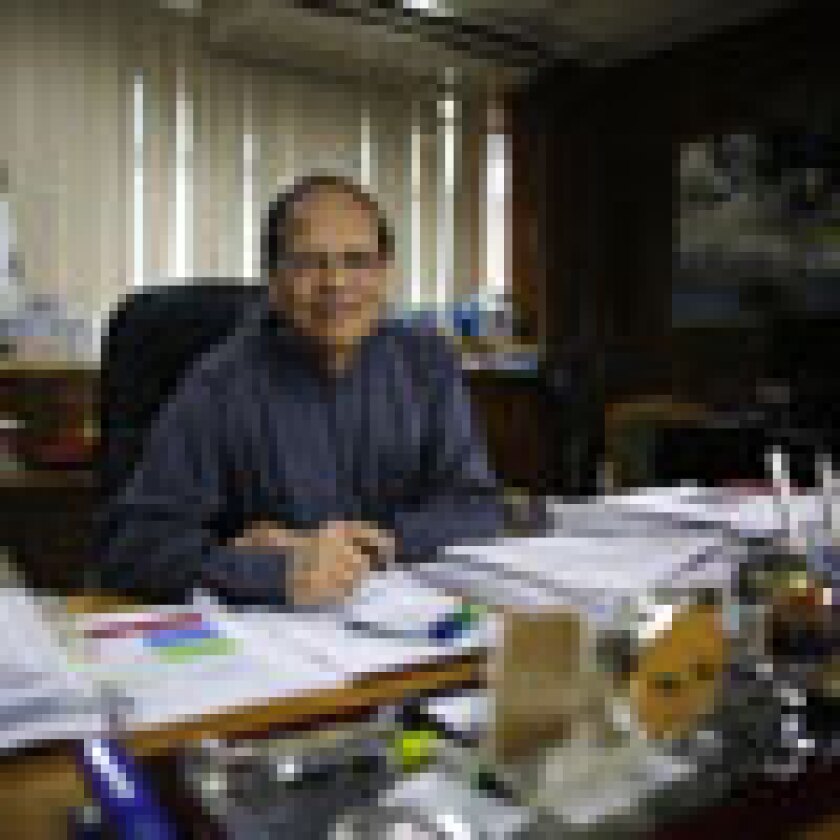Financial inclusion or economic growth? It is tempting to think of it as an either/or choice, that addressing social inequality must necessarily be a drag on expansion. But the experience of Bangladesh suggests otherwise
Atiur rahman came to the central bank from an unlikely background: the son of an uneducated and landless farmer in a small village, he worked his way from village school to college to Dhaka University and London’s SOAS (School of Oriental and African Studies) as a student, and then into academia as a professor of development studies, before being appointed governor of Bangladesh Bank in April 2009. Not much of what he has done since has been conventional or internally popular. “I came from out of the box; I was a university professor; I could not think like a conventional central banker,” he says. “I said: ‘my job is to redesign finance’. ”
Central to this was what he calls “touching the ground”, or engaging with the real economy. “From day one, my first step into the central bank, I said: ‘I will make it more inclusive and financially sustainable’.”
He did this through a number of programmes and approaches, from empowerment of women through to getting street kids into the financial system, but one of the most powerful examples was an attempt to reach the one million tenant farmers who had never been covered by finance before, whether mainstream banking or microfinance lending. “I did my PhD on the peasantry in Bangladesh,” he says. “These are the groups that must be reached. But when I talked to my central bankers, they didn’t have a clue how to reach them. I told them to be innovative.”
He started by creating a line of Tk5bn ($62m) and put the money into some of the world’s largest MFIs (monetary financial institutions), telling them to commit the money to share croppers and other poor groups. “My board was not happy about it: mostly bureaucrats or academics of a conventional nature,” he says. One senses he takes some pride in having clashed with established leadership.
By now, he says, Tk15bn has been disbursed, all of it recovered and a million households have benefited, with 62% of beneficiaries women. “Studies show that the children of these families are getting better health and education, nutrition has gone up, women are empowered and these one million people are a net addition into the banking sector.”
FEEDING INTO THE ECONOMY
What’s interesting about Rahman’s approach, which has really started to visibly bear fruit over the last year, is that it appears to be generating considerable strength and resilience in the Bangladesh economy. Bangladesh is growing at 6.5% this year; Rahman reckons more than 7% is feasible next year. At the same time inflation has come down from 12% to 6.5%, the exchange rate has remained stable for three years when other emerging market currencies are falling, and reserves have quadrupled under his tenure. He credits this to financial inclusion. “Money needs to touch the ground,” he says. “You can throw money in the air, but it will only create bubbles and inflation.”
At the same time, defaults are actually declining. “We are as good as the region,” Rahman says. “Many people thought during the financial crisis that many farms would go bust and NPLs [non-performing loans] would go up. But they have not. They have come down to single digits.”
Along the way, Bangladesh has become something of an outlier in emerging markets, holding firm while others are in decline. “I have a pleasant challenge of addressing surpluses, not deficits,” he says. Partly, like the Philippines or Lebanon, this is a function of remittances from overseas workers and partly exports in textiles and agriculture; if anything, it has caused a challenge in keeping the exchange rate stable.
Believing in financial inclusion is one thing; getting the entire financial services sector on board is another, and one wonders how much has been about inspiration and how much coercion. Asked about this, he says the CEO of a major bank said to him: “At first, we thought you were coercing us. Now, we think it’s good business. They [poor borrowers] return 100% of their money; the big corporates are the ones who don’t.”
No matter how great the lift of recent years, Bangladesh is still something of a perilous place: anywhere with so many around the poverty line and with such unfair vulnerability to natural disasters will always be so. In August Nomura warned of a new wave of food price rises and said Bangladesh was among the most vulnerable to this happening; it recalls the desperate situation in 2008 when, at one stage, Bangladesh could not buy rice on the open market at any price. “It is completely the other side now,” Rahman insists. “Because of the support we have given in increasing agricultural loans, we are now running a surplus in food production. We have exported some rice to Sri Lanka and are sending some to northeast India.” Food inflation, which once ran at 17%, is below 5% now, he says.
To him, it’s another example of doing the right thing being good for the economy. “The real economy,” he says, “has rejuvenated the country.”

